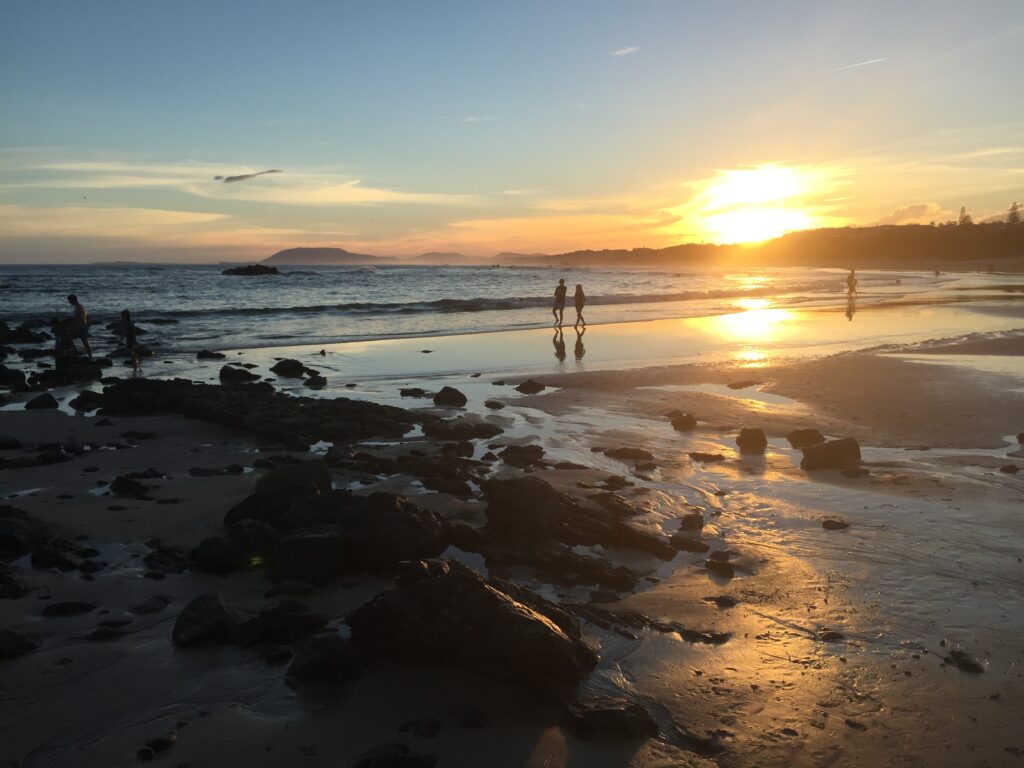A reflection on Psalm 27:3-6, 14 and Exodus 33:7-11 for Sunday, February 7, 2021 at Mosaic Baptist Church

…Though an army encamp against me,
my heart shall not fear;
though war rise up against me,
yet I will be confident.
One thing I asked of the Lord,
that will I seek after:
to live in the house of the Lord
all the days of my life,
to behold the beauty of the Lord,
and to inquire in his temple.
For he will hide me in his shelter
in the day of trouble;
he will conceal me under the cover of his tent;
he will set me high on a rock.
Now my head is lifted up
above my enemies all around me,
and I will offer in his tent
sacrifices with shouts of joy;
I will sing and make melody to the Lord.
…I believe that I shall see the goodness of the Lord
in the land of the living.
Wait for the Lord;
be strong, and let your heart take courage;
wait for the Lord!
Psalm 27:3-6, 14 (NRSVA)
Now Moses used to take the tent and pitch it outside the camp, far off from the camp; he called it the tent of meeting. And everyone who sought the Lord would go out to the tent of meeting, which was outside the camp. Whenever Moses went out to the tent, all the people would rise and stand, each of them, at the entrance of their tents and watch Moses until he had gone into the tent. When Moses entered the tent, the pillar of cloud would descend and stand at the entrance of the tent, and the Lord would speak with Moses. When all the people saw the pillar of cloud standing at the entrance of the tent, all the people would rise and bow down, all of them, at the entrance of their tents. Thus the Lord used to speak to Moses face to face, as one speaks to a friend. Then he would return to the camp; but his young assistant, Joshua son of Nun, would not leave the tent.
Exodus 33:17-11 (NRSVA)
In Exodus we read of a special ‘tent’ set up ‘outside the camp’. It is clearly a place of retreat and open to ‘…everyone who sought the Lord’. It is named the Tent of Meeting.
It is a place of prayer. A place set aside from the hustle and bustle of communal life where anyone can find space to be with God. Clearly Moses went to this place often. So often, in fact, that it seems that a tradition has developed around his time spent speaking with the Lord: the whole community rose up and bowed from their own dwellings.
This place is so special that Joshua son of Nun, the one who will replace Moses, spends all his time there. Perhaps one might be tempted to find another, more significant pass-time for a would-be leader of his nation.
Not in Israel. Here prayer is a priority.
Of course, as time went on, the nature of the Jewish community changed. They settled in their own land. They built permanent structures. Solomon’s temple became the primary place of worship.
The temple, however, was not accessible to everyone all the time. Many lived outside Jerusalem and made only occasional pilgrimage. Some were a significant distance even from a local synagogue.
How would people learn to pray if they only made occasional contact with the worshipping community?
The answer was the Psalms. This collection of prayer, poetry, and song was considered a lifeline to temple life – no matter where one was. They were very memorable, taught to all children, and as such, were able to be prayed at any place or time.
The psalms were a portable ‘tent’ – a reminder to turn to God in every circumstance. In fear. In trouble. In times of plenty. In times of little. There seems to be a Psalm for almost every occasion. A song to bring to God every emotion humanity is capable of.
The Psalms are a practical call to ‘ask’, ‘seek’, and ‘wait’, as Psalm 27 says, in the presence of God.
Not every modern church uses the Psalms to pray. Some prefer to be more spontaneous in prayer – as if this makes it more authentic. These written prayers, however, often show signs of careful craftsmanship, long hours of care and scribal attention. They are works of art.
Every word is considered.
Importantly, the Psalms are not a call to pray this way exclusively. Disciplined prayer – at its best – should lead to spontaneous prayer. Well learned prayer should lead to our own prayer. Wrote is a path to improvisation.
So the psalms are, ultimately, an invitation to learn to pray anywhere, anytime. They give permission to bring all of life into the ‘tent’ of God’s presence. They offer words when we have none, permission to sit in silence if needed. They are an invitation to sing God’s praises with every fibre of our being.
In essence, they offer a path to a lifetime of dwelling in the presence of God!
Conversation Starters:
How have you learned to pray? What are the strengths of this tradition? What might be the weaknesses or risks of it?
Has God ever spoken to you through the Psalms? Has God ever spoke to you through the spontaneous prayers of another?
In what way has spontaneous and structured prayer interacted in your life? Do you see these as one life of prayer – or two separate disciplines?